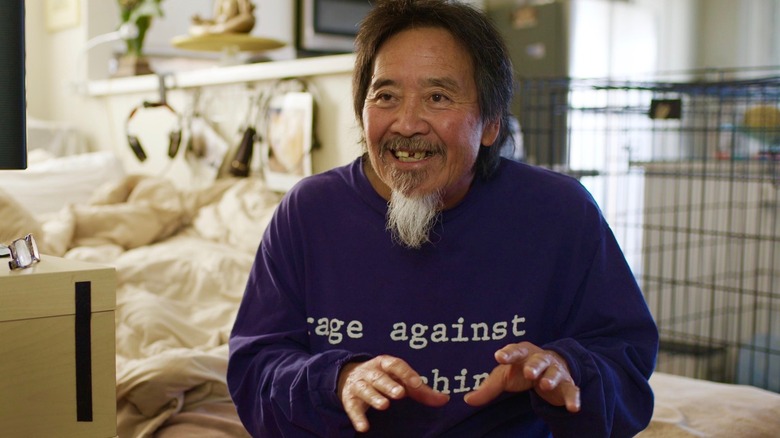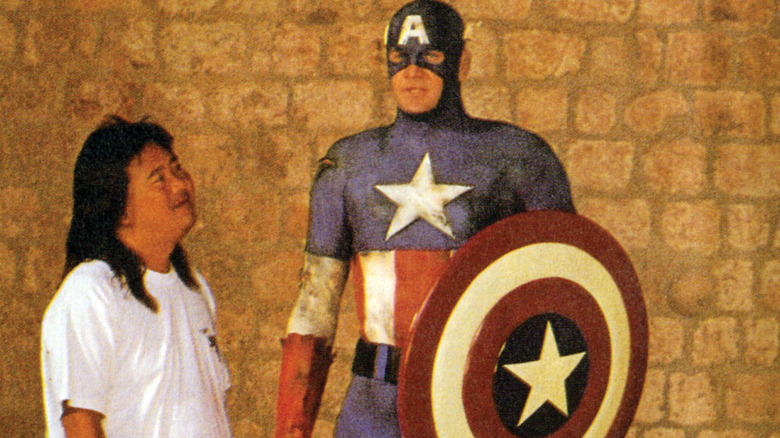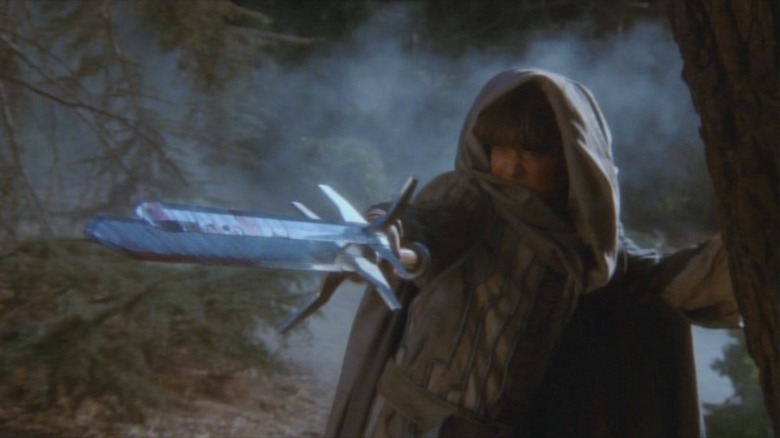Albert Pyun, Director Of The Sword And The Sorcerer And The 1990 Captain America Movie, Has Died At 69
Albert Pyun, the filmmaker behind cult favorite B-movies like "The Sword and the Sorcerer" and "Cyborg," died on Saturday 26 November, 2022, at the age of 69. Albert's wife, Cynthia Curnan, shared the news on social media, writing, "I sat with him for his last breath that sounded like he was releasing the weight of the world."
Per Variety, Pyun had been diagnosed with multiple sclerosis and dementia in recent years, but kept working on projects up until his death. "Its so rote. It's so part of my DNA. It's something I can do fairly effortlessly to keep my mind active," he told the Wall Street Journal in 2018.
While genre movies, and superhero movies in particular, currently dominate the box office and have nine-figure production budgets as standard, Pyun thrived in the arena of low-budget filmmaking. In a retrospective on his career, Pyun said that he worked on the 1993 B-movie "Arcade" for free, and shot it back-to-back with 1991's "Dollman" over just 12 days. "The money was more or less there," he recalled. "[Producer Charles Brand] would show up at the end of the week and pay everybody in cash, the cast and the crew, so we could shoot the next week."
Pyun faced another challenge with the 1990 "Captain America" movie, starring Matt Salinger. Originally set to be made for $6 million, the budget was cut in half midway through production. "The cash flow just vanished," Pyun said in an interview with Las Vegas Weekly. "It was a miracle the production didn't shut down and fall apart. So we just shot as fast as possible and used that momentum to finish the shoot." Without financing, he was forced to improvise; on one day of filming when the cash had run dry, Pyun shot a scene where a character falls to their death by "stuff[ing] a suit on top of a burlap sack and [throwing] it off a cliff."
'I was trying to make each one of these films distinctly my own'
Pyun's personal vision for his films often brought him into conflict with the studios producing them. "I had a streak of about a dozen films where I was kicked out of the editing room," he told WSJ. No matter which property he was bringing to the screen, even a classic superhero like Captain America, he was always "trying to make each one of these films distinctly my own." And his vision sometimes found its way to the screen anyway; in 2011, the director's cut of "Captain America" was released on Blu-ray, running 27 minutes longer than the original cut. Around the same time, his director's cut of "Cyborg" was released under the new title "Slinger."
1982's "The Sword and the Sorcerer" was Pyun's first movie, and also his most commercially successful, grossing $39 million from a production budget of just $4 million. But while he never repeated its financial success, that fact didn't seem to concern him too much. "I never try to kowtow too much to commercialness," he said in a retrospective for Good Movie Monday.
Growing up in Hawaii, Pyun was influenced in his early years by the mix of Japanese, European, and American films on offer at the local theaters. When Pyun was still in high school, famed Japanese actor Toshiro Mifune saw one of the short films he had made and wrote him a letter, saying, "It's a tough business but you should stick to it." Mifune invited Pyun to do an internship with him, originally on the Akira Kurosawa film "Dersu Uzula" and then instead (when Mifune decided against the Kurosawa film) on TV shows with Kurosawa's cinematographer of choice, Takao Saito.
'You have a canvas'
Directing commercials in Honolulu early in his career, Pyun learned "how to work fast, and add as much production value as I could. I never had any big budgets so I learned how to be resourceful." Working with Takao Saito, he was taught "that you have a canvas and it's like a window that the audience is looking through. You control what they see. Until then I had never realised all these planes of existence."
Over the course of his career, Pyun earned a cult following of B-movie fans and experienced filmmaking in what might be its most exciting (if stressful) form: perpetually on the verge of running out of money, and constantly coming up with creative ways to get shots in the can and add that precious production value.
Pyun is survived by his wife, Cynthia Curnan, who wrote on Facebook that she wants to spend her future "doing right by his legacy." Those plans include the release of a never before seen ending for "Captain America," as well as director's cuts of some of his other movies.


